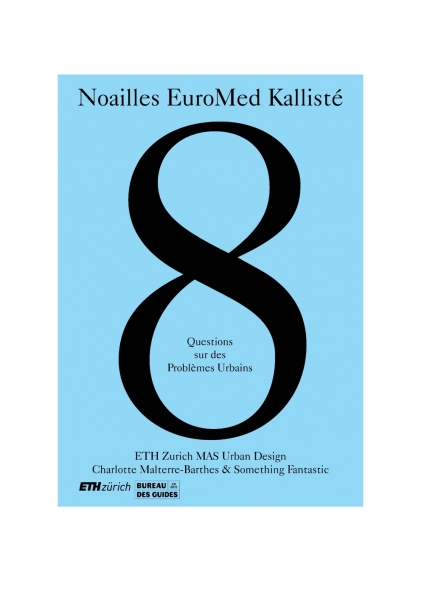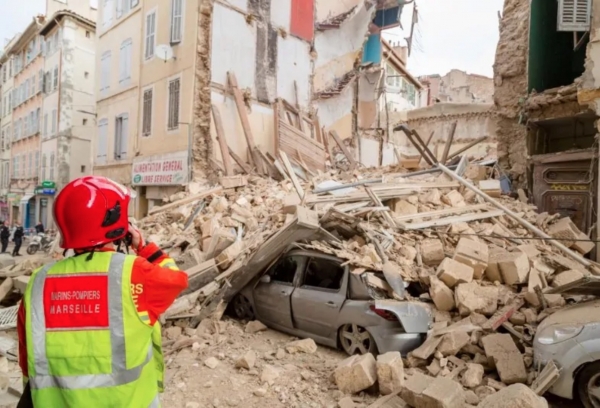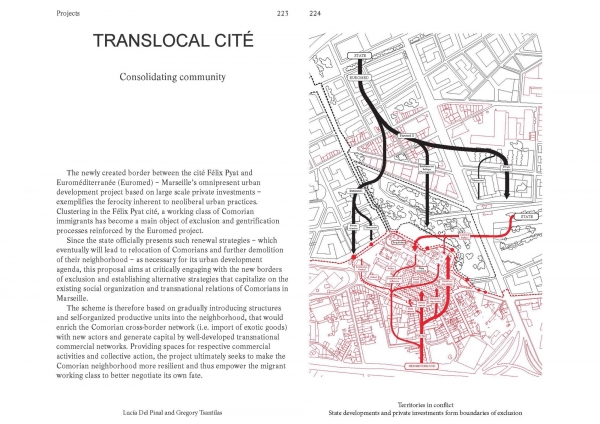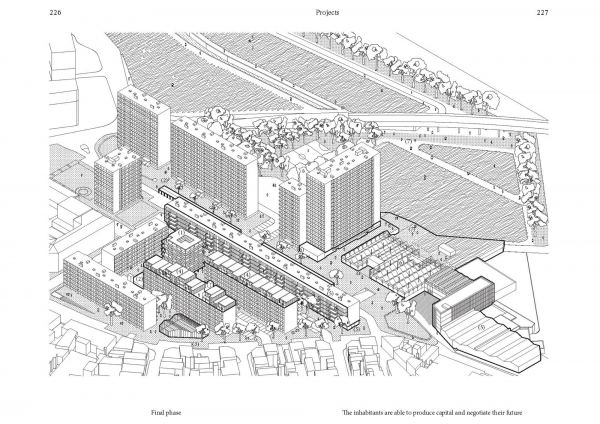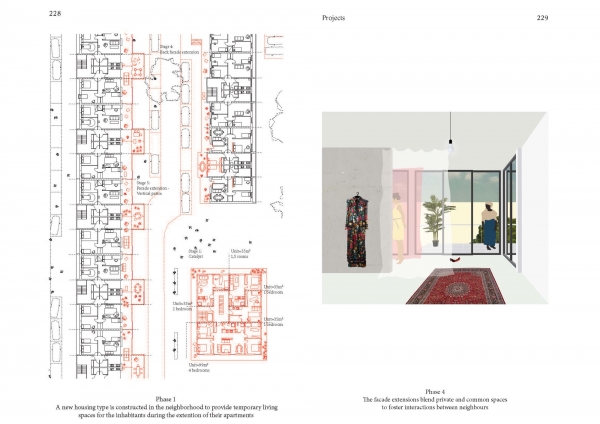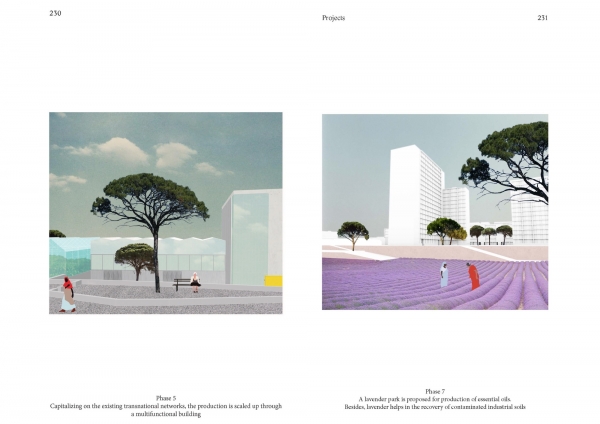Research + Teaching
Inclusive Marseille
ETHZ MAS Urban Design: Inclusive Urbanism and Migration 2017-2019
“A place where anybody of any colour could come out of a boat or of a train, suitcase in hands and empty pockets, and merge into the flow of other humans. A city where, the second one stepped foot on the ground, one could say: ‘That’s it. I’m home.’ Marseille belongs to those who live there.”1 Jean-Claude Izzo (1995). Total Khéops. Paris: Gallimard Série Noire.
Marseille is a city of migration, and this has imprinted the urban fabric in a multitude of ways. Several examples show how waves of immigrants, refugees, and migrants have prompted different urban responses, from slums modeled on Algerian villages, to private initiatives for mass housing, to public programs of ‘Grands Ensembles.’ Through time, these have generated particular urban conditions.
But Marseille is also a city in crisis. The Noailles drama and the collapsed houses in its dense, diverse, and economically modest center revealed profound issues of spatial injustice, building maintenance and urban governance. The answer of governing elites is disconnected and bogus. Housing is a matter chiefly addressed by the urban redevelopment program of Euromediterrannée, a massive speculative scheme declared of ‘public national interest’—in reality a private capital-generating machine with a thin varnish of sustainability and participation. Yet what it produces is a future of dilapidated public resources and bad housing. The other way authorities address issues of segregated and degraded estates is via so-called ‘salvation plans’, in fact demolition schemes with a net loss of affordable housing like the housing estate Parc Kalliste.
At the same time, public housing need is still important, and France should construct 500.000 units a year to cope with the demand. However, the current modus operandi of construction is problematic. Questioning the current situation of Marseille and of migration impacts in general, the studio investigates inclusive modes of planning and urbanization, and aims to define alternative urban trajectories (understood as a design path, a conceptual progression of development towards more detailed spatial planning) for Marseille.
With the exhibition ‘8 questions sur des sujets urbains’, the studio has been exhibited at the Gallerie du Sentier, Bureau des Guides, La Canebiére, Marseille from May to Oct. 2019. A brochure (in French) documents the work.
"Inclusive Urbanism and Migration" as an urban design studio tackles urgent questions of migration in relation to architecture and urban space, investigating how cities cope with new comers and how migration shapes space. This work proposes ideas and design solutions for heterogeneous programs working with constructions materials and methods, tenure mechanisms, land occupation, and natural resources, among other factors. The studio takes as point of departure that thriving on social justice, wealth redistribution, democracy, and ecological awareness, urban design can be an innovative, resilient, and politically powerful tool for actors involved in the production of the built environment to contribute to a more inclusive practice of urbanism.
Students:
Ahn Doyoung , Ashok Kumar Preethi, Bilbao Velez Berta, Cirron Chiara, Del Piñal Álvarez De Buergo Lucía, Gao Ge, Kan Carol, Levine Mardones Pablo, Li Jin, Malami Virginia, Orozco Aguirre Maria Jose, Papadimas Kampelis Georgios, Schulman Alexis, Shen Wenjie, Tsakalakis-Karkas Alexios, Tsantilas Gregory, Tzevelekou Christina (2017-2018).
Afentouli Eirini, Alnashmi Jassim, Bansal Simran, Gkotsopoulou Georgia, Gonzalez Palos Andrea, Gusain Dhruv, Joshi Akash, Kontinou Chimou Stefania, Leelasiriwong Fai, Meloni Beatrice, Patel Caitanya, Skate-Patel Rima, Pierrakou Chrysoula, Sakellaropoulou Kalliopi, Vargas Mondragon Mariana, Zachariadi Alexandra, Zhang Yihan (2018-2019).
Some of these works are published in “Migrant Marseille-Architectures of Social Segregation and Urban Inclusivity” (Berlin: Ruby Press, 2020) with Marc Angélil and Something Fantastic.
2017-2019, Director, in collaboration with Something Fantastic and le Bureau des Guides 13, ETHZ.
Teaching Assistants: Lukas Graf, Sara Sherif
1 Jean-Claude Izzo (1995). Total Khéops. Paris: Gallimard Série Noire.
Exhibition ‘8 questions sur des sujets urbains’, the studio has been exhibited at the Gallerie du Sentier, Bureau des Guides, La Canebiére, Marseille from May to Oct. 2019.
Two buildings containing apartments at numbers 63 and 65 Rue de l’Aubagne suddenly collapsed in the Noailles district of the Mediterranean port on November 5th 2018. A third building, number 67, partially crumbled a few hours later. 8 people died.
Inclusive Marseille, ‘Translocal Cité: Consolidating Community’ (Gregory Tsantilis, Lucia Del Pinal, 2018)
